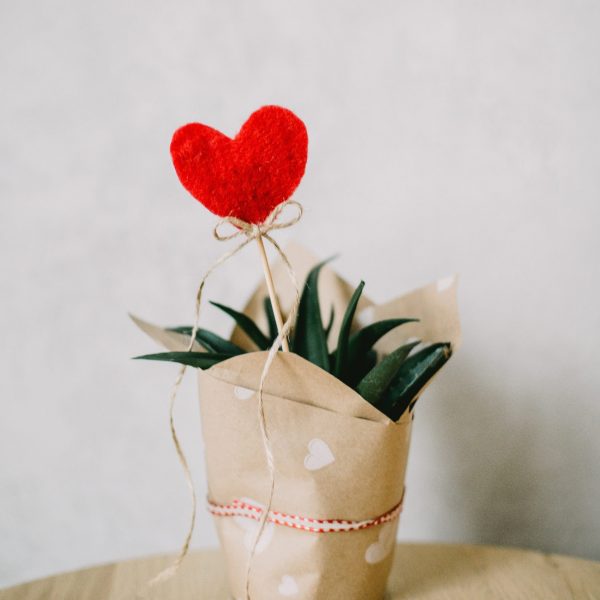Humans are incredibly emotional beings. Perhaps no one knows that better than those battling any health condition, including infertility. The trouble comes when emotions, particularly the hard ones, won’t take a break and cause stress. They don’t stop for a holiday, a birthday or the anniversary of a significant occasion. It seems too, that the shorter, darker days of winter in the northern hemisphere, the holiday-filled time of year, offer more opportunity for heavy emotions to creep in and settle for a while, often longer than any of us would like. There is no better time than when emotions take hold to enlist the help of a warm cup of tea.
There is something in the nature of tea that leads us into a world of quiet contemplation of life.
— Lin Yutang (The Importance of Living)
Tea has the power to energize and wake you, as well as to soothe and calm you. Tea can boost metabolism and digestive health, provide a wide array of antioxidants, help you de-stress and support emotional wellness, and even promote sleep. We like herbal tea around here! I can guarantee you on any given day the majority of our staff is sipping on an herbal infusion. Infusing water with herbs to obtain their nutrients, the “medicine” they have to offer, is a very easy, creative, and relaxing way to utilize herbs.
There are many herbs to calm the heart, mind and soul. Many of them taste wonderful as a tea and also have fertility-boosting benefits!
Four of my favorite calming herbs for tea are:
Nettle leaf (Urtica dioica) – Nettle is a nutritious leafy green, high in iron and vitamin C, as well as many B complex vitamins, beta-carotene, calcium, and potassium. It’s a wonderful, gentle herb for detoxifying support, nourishing the endocrine system, supporting uterine tone and strengthening the kidneys and adrenal glands. Nettle for me gives rise to feelings of strength!
Linden flower and bract (Tilia platyphyllos, T.cordata) – Linden trees line boulevards where I live. Their flowers and bracts are known to gently and safely support the nervous system – lower blood pressure (mild), reduce depression, lessen anxiety, and decrease insomnia.
Oat straw (stems), or Milky Oats (tops) (Avena sativa) – Oats support the nervous system and are nourishing. They are an easy, great way to support stress related to fertility.
Lemon Balm leaf (Melissa officinalis) – Lemon Balm also offers gentle emotional health and nervous system support for a healthy stress response to reduce depression and anxiety. (Not suggested for people with hypothyroidism).
Rose petals (Rosa damascena Mill.) – Rose has strengthened hearts for millennia. Most known as an essential oil or scent, dried Rose petals can also elicit calm and ease depression, grief, stress and tension. Rose has also traditionally been used as a treatment of irregular menstrual bleeding, digestive problems, and inflammation reduction.
Blend Your Own ~ A Heart at Peace Tea
Ingredients:
2 parts Nettle leaf
1 part Linden flower and bract
1 part Oat Straw or Milky Oat Tops
½ part Lemon Balm
½ part Rose
Optional: A pinch of one of the following…
- ½ part Chamomile flowers (Chamomilla recutita) for added calm and restful sleep if sipping a cup before bed.
- ½ part Hibiscus (Hibiscus rosa-sinensis) or Schisandra (Schisandra chinensis) berries for a bright, tart infusion that is lovely cold.
If you are wondering how to measure “parts” of each herb, watch this video…
Combine each herb in a glass container with a tightly fitting lid. When ready to brew a cup, pour 8-12 ounces of freshly boiled water over 2 Tablespoons (Tbsp.) of loose herb mixture, cover and steep for 15 minutes. Strain and enjoy!
It is important to acknowledge emotions so that the body doesn’t hold onto them. Emotions MUST be processed in order to release them. “Healing is always a combination of emotional, physical and spiritual work. ~ Dr. Christiane Northrup
- Barton-Schuster, D. (updated Nov. 2, 2018). How to Use Fertility Herbs To Enhance Your Fertility Naturally. Retrieved from https://natural-fertility-info.com/fertility-herbs
- Boskabady, M. H., Shafei, M. N., Saberi, Z., & Amini, S. (2011). Pharmacological effects of rosa damascena. Iranian journal of basic medical sciences, 14(4), 295-307. Retrieved from https://www.ncbi.nlm.nih.gov/pmc/articles/PMC3586833/#B22
- Borgsteijn, L. (April 28th, 2016). All about Nettles. Retrieved from https://www.iinh.net/all-about-nettles/
Crawford, R. (Nov. 20). Why Tea? An In-Depth Look at the Health Benefits of Tea. Retrieved from: https://physicalkitchness.com/in-depth-look-at-the-health-benefits-of-tea/ - Espinoza, J. (January 9, 2014). DIY Guide to Tea Blending. Retrieved from http://www.deliciousobsessions.com/2014/01/diy-guide-tea-blending/





